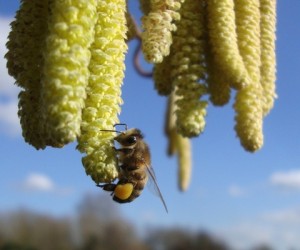Blog – bees, beekeeping & other sticky subjects
The Road to Registration
 Have you ever considered what goes into the development and registration of a Vita product for honey bees? It’s probably a lot more than you ever realised.
Have you ever considered what goes into the development and registration of a Vita product for honey bees? It’s probably a lot more than you ever realised.
Courtesy of Bee Craft, Britain’s top-selling beekeeping magazine, here’s an article by Sebastian Owen of Vita telling of some of the trials and tribulations of attempting to have a product authorised. It’s all worth while though as purchasers can be assured of a safe, quality product that has been proven to work.
Solar Eclipse
 Today, there is a total eclipse of the sun at various times right across the USA from Oregon to South Carolina.
Today, there is a total eclipse of the sun at various times right across the USA from Oregon to South Carolina.
How will bees react? Please tell us of your observations. Email
Here are some reports of earlier eclipses that we reported on in 2015.
Returning bees during the eclipse from “Don the Fat Bee Man”:
and from RankinetotheRescue
New Twitter and Facebook handles
 You may have noticed today’s change in our Facebook handle. Now it’s @VitaBeeHealth and www.facebook.com/VitaBeeHealth/
You may have noticed today’s change in our Facebook handle. Now it’s @VitaBeeHealth and www.facebook.com/VitaBeeHealth/
Over on Twitter, it’s @VitaBeeHealth too.
No followers should be affected – new followers should look for the new handles.
Vita’s first Basingstoke allotment harvest
Despite opening its trials apiary in a Basingstoke allotment late this season, Vita has harvested a crop. Well, actually it’s two Basingstoke beekeepers who have done the harvesting.
Derek Western, one of the Basingstoke beekeepers, said: “I wasn’t expecting any harvest this year, but we were surprised by one colony. Next year should see a lot more as all colonies will have had a chance to build up and forage for a full season.
“Interestingly, there’s a marked difference between honey from the Vita Apiary and that harvested from my own apiary on a nearby allotment, even though they are only one mile apart. The Vita apiary honey is light and floral honey with an aftertaste of lime.”
Paulo Mielgo, Vita’s apiarist is sharing the jars amongst the team.
Pollen-rich diets help combat varroa
We have known that honey bees use plant resins with antibiotic properties to control pathogens in the colony, but a multi-national team of researchers has just shown that pollen-rich foods help too.
In investigating this “social immunity”, they tested to see if pollen is beneficial for honey bees infested with the parasitic mite Varroa destructor which is associated with deformed wing virus (DMV).
First, they studied the effects of pollen on the survival of infested bees in the laboratory and in the field. They observed that a pollen-rich diet can compensate the negative effects of mites. They went on to identify the beneficial pollen compounds.
Under lab conditions, pollen did not have much effect on bees without varroa, but it did lengthen the lives of those infested by the mite. In the field, although the sample size was small, the effect was more dramatic with all of the control colonies dying out while two pollen-fed colonies survived.
The researchers think that it is the lipidic compounds of pollen that have a positive effect – but they don’t rule out other compounds. They even think that bees may be deliberately selective in their foraging to get the right balance of macronutrients.
The full research report published in Nature online can be read here.
The research gives further support to the field trials showing the beneficial effects of VitaFeed Nutri pollen supplement.





